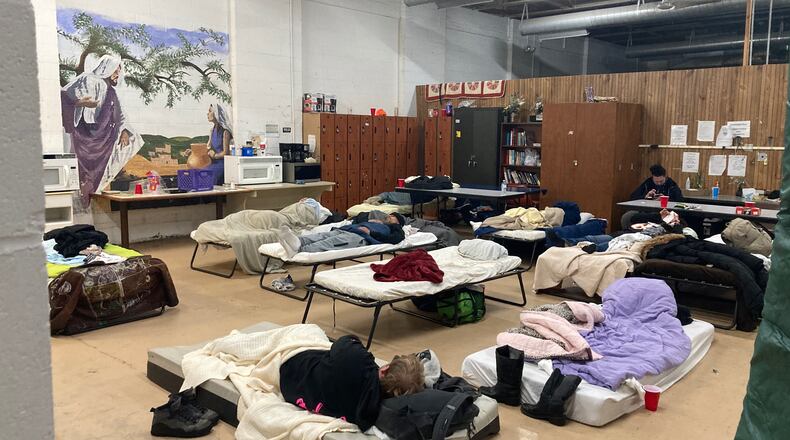The total cost of the project is $7.5 million for three main projects:
- $3 million to build 30 new low-income housing units;
- $2.4 million to relocate the existing main shelter in Hamilton, but stay within the Jefferson neighborhood;
- $2.1 million for infrastructure for a “Moving Forward: Housing Stability Program” that includes upgrading transitional living apartments, adding offices for counseling and case management, buying vehicles for resident and food transportation, operating costs and other expenses.
Hood told the Journal-News they want to move the main shelter to a new location because the current location, a former car dealership, is not conducive to helping people out of homelessness.
“The only way we’re able to house people here is in kind of a barracks style of housing and most experts in homelessness will tell you that that group style of housing adds to people’s trauma and often impairs their ability to move forward,” Hood said. “So most folks are going to a dorm style or pod style where you’ve got three roommates rather than 38.”
In addition to ARP funds Hood said he is hoping the commissioners will also award them Community Development Block Grant and HOME Investment Partnerships Program money from the U.S. Department of Housing and Urban Development.
When Commissioner Don Dixon asked him how much money they have in annual revenues to sustain this larger operation Hood said around $600,000. Dixon said he thinks this is “mission impossible” for Serve City to do on their own and they need the support of organizations like the Hamilton Community Foundation to back them up.
“It appears your assets don’t even come close to what you’re wanting to build here ...” Dixon said. “I applaud your vision and I think once we give this money to you or somebody this money, then you have to be able to sustain it. Everything I see here is growing it bigger and more programs and more counseling and more mentoring, but your revenues are nonexistent and you don’t have anybody who we would call in the business world with deep pockets who is going to step in and back you up.”
Hood, who has been on the job here about a year, said the shelter has not done a very good job of fundraising previously. He said their revenues are an even split between grants and private funding.
He told the Journal-News they have a development plan in place that could bring in $1 million in private donations and he really believes they can make this work with the help of various partnerships.
“If we can get the building paid for or if we can negotiate with the city of Hamilton for some property, I don’t believe in this whole thing we’re asking for a ton of extra overhead,” he said. “Also even in building an apartment building it’ll be the BMHA (Butler Metropolitan Housing Authority) vouchers and the rent that people will pay as they live there that will make that long-term sustainable.”
Commissioner T.C. Rogers reminded Hood the commissioners have outcome goals for the one-time windfall they are charged with disbursing.
“I think you’ve heard us talk about whatever we do with this money will be sustainable, it’s not just a one shot deal,” Rogers said. “What’s it going to be like three years from now, five years from now.”
Hood said they are not “just building buildings, putting people in there and saying good luck, we are there on site working with people, helping them set achievable goals, holding them accountable along the way, so it’s not just housing but supportive housing.”
The commissioners were also concerned this project is all Hamilton-centered and worried the county’s largest city will become a “magnet” for the total homeless population.
Hood said “building a countywide mega site is not our best bet.”
“Our intention would be to build a best in class service organization here in Hamilton and then replicate with the same DNA but different applications” in other areas based on need, Hood said.
About the Author

